46 Results
Scientists Identify Interferon-gamma as Potential SARS-CoV-2 Antiviral
Conditioning the lungs with interferon-gamma, a natural immune system protein best known for fighting bacterial infections, appears to be a strong antiviral for SARS-CoV-2, which causes COVID-19
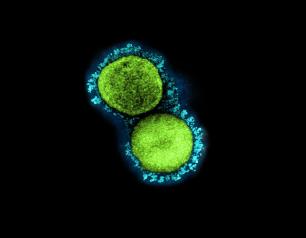
Antibodies Passed through Placenta May Improve Survival for Infants with HIV
Certain antibodies that pass through the placenta are associated with the improved survival of infants who acquire HIV through nursing. A Kenya-based study observed that preexisting antibodies that target a region of a protein on HIV's surface were correlated with delayed HIV acquisition in infants exposed to the virus as well as a lower amount of virus circulating in the blood of infants who acquired HIV.
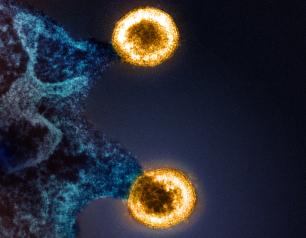
NIAID Team Explores Metabolism in Determining Infection Severity
The route a pathogen takes in causing infection can determine the severity of disease. NIAID scientists are looking at metabolism to determine how and why there is a difference.
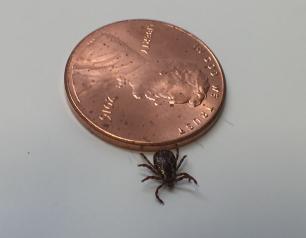
Nobel Prize Awarded for Research Leading to mRNA COVID-19 Vaccines
Earlier this month, the Nobel Prize for Physiology or Medicine was awarded to Drew Weissman, M.D., Ph.D., and Katalin Karikó, Ph.D., for their groundbreaking, decades-long work on messenger RNA (mRNA) that enabled the unprecedented rapid development of the mRNA vaccines that stemmed the COVID-19 pandemic. Both Nobel laureates have connections to the National Institute of Allergy and Infectious Diseases (NIAID) and the NIH.

NIAID Workshop Examines Connection between Maternal, Fetal Immune Systems and Improving Reproductive Health
In July, NIAID hosted a workshop of technology developers, immunologists, maternal health researchers and clinicians to explore the importance and challenges of measuring, predicting and improving reproductive health in the context of maternal and fetal immune systems.

Leishmania Parasite Uses Host Antibodies in Insect Vector’s Blood Meal to Breed
It’s a finding perfect for spooky season—inside a bloodsucking insect, a parasite uses the blood of mammals to get more fit to infect unsuspecting people. In this case, the story is more troubling because it’s a real threat. The parasite is Leishmania, which causes leishmaniasis, a primarily tropical and subtropical disease that can cause skin lesions and organ damage, and can be fatal.

Scientists Discuss Prototype Pathogens for Pandemic Preparedness
A special Oct. 19 supplement to the Journal of Infectious Diseases contains nine articles intended as a summary of a National Institute of Allergy and Infectious Diseases (NIAID)-hosted pandemic preparedness workshop that featured scientific experts on viral families of pandemic concern.

SARS-CoV-2 in Airway Can Trigger Lung Fibrosis; Potential Treatment Identified
NIAID scientists and colleagues have identified a cause of COVID-induced lung fibrosis, a severe and often fatal result of COVID-19 that leaves lungs scarred, clotted and leathery, and patients struggling to breathe.
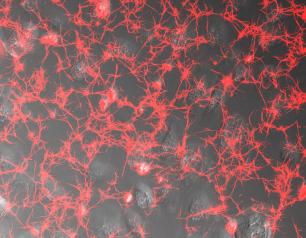
The STOMP Trial Evaluates an Antiviral for Mpox
NIAID launched the STOMP trial to determine whether the antiviral drug tecovirimat can safely and effectively treat mpox. In a video, Dr. Cyrus Javan of NIAID's Division of AIDS explains the importance of the STOMP trial.
Building a Better Malaria Vaccine—NIAID Researchers Design a Paradigm-Busting Candidate
NIAID researchers used structural information about two malaria parasite proteins along with mechanistic information about the interaction between them to design and build an entirely novel candidate vaccine. When tested in rats, their “structure-based design 1” (SBD1) immunogen vaccine performed better than other experimental malaria vaccines. It also upends the conventional wisdom that successful vaccines must elicit receptor-blocking antibodies.
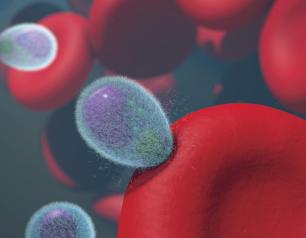
NIAID Researchers Study Causes of Brain Swelling in Cerebral Malaria
In children with cerebral malaria, brain swelling can cause seizures, coma, and death. Researchers from NIAID and their colleagues studied children with cerebral malaria in Malawi to better understand the underlying causes of these devastating symptoms.

HPAI Influenza Devastating Birds, Marine Mammals in Peru--Study Identifies Concerning Viral Mutations
NIAID-funded researchers working in Peru have signaled concern about the deaths of birds and marine mammals from highly pathogenic avian influenza (HPAI) that has been spreading globally.
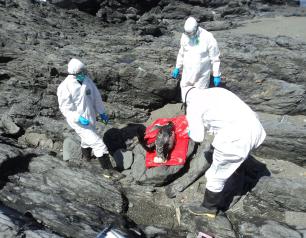
Promising Experimental Vaccine for Tick-borne Kyasanur Forest Disease Virus
With ticks expanding their territories in many parts of the world, a NIAID research group has likewise expanded its promising vaccine research to two typically rare pathogens with potential for public health importance -- Kyasanur Forest disease and Alkhurma hemorrhagic fever.
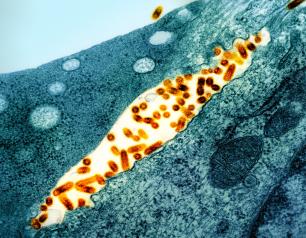
NIAID-Supported Research is Advancing the Response to Surging Syphilis Rates
Syphilis, a common sexually transmitted infection (STI) caused by the bacteria Treponema pallidum, can result in adult neurological and organ damage, as well as congenital abnormalities, stillbirths, and neonatal deaths. More research is urgently needed to diversify the diagnostic, preventive, and therapeutic options available to alter the course of the public health threat of syphilis. NIAID supports research to address these areas including studies featured at the recent STI & HIV World Congress in Chicago.

Ohio State Scientists Evaluate Role of Deer in SARS-CoV-2 Transmission
SARS-CoV-2 evolves three times faster in white-tailed deer than in people, making NIAID-funded scientists at The Ohio State University and colleagues ask whether deer are an important reservoir for emerging virus variants.
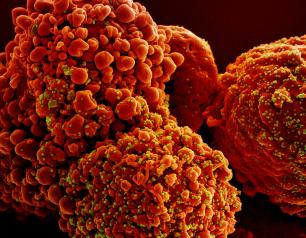
NIAID-Funded Study Traces Evolution of Malaria Drug Resistance in E. Africa
A new NIAID-funded study shows how inconsistent malaria control measures in East Africa could be aiding the emergence of drug-resistant mutations in the primary parasite that causes malaria.
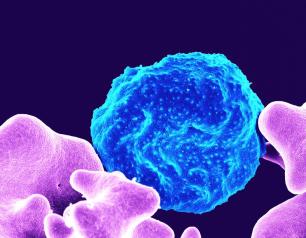
World Photo Day 2023 – Creating Colorized Microscopy Images
On this World Photo Day, we explore colorized microscopy images with NIAID microscopist John Bernbaum and visual specialist Julie Marquardt.
World Mosquito Day 2023—How Mathematical Modeling Reveals the Link Between Climate Change and Mosquito-Borne Diseases
As global temperatures rise, it has become more urgent to understand the interactions between climate, mosquitoes, and the pathogens mosquitoes transmit to humans. NIAID Now spoke to Luis Chaves, Ph.D., a 2023 Scholar with the National Institutes of Health (NIH) Climate Change and Health Initiative, about his work about the impacts of environmental change on the ecology of insect vectors and the diseases they transmit.

Relation of Parasitic Worm Infection and SARS-CoV-2 Explored
NIAID researchers used mice to investigate a possible relationship between parasitic worm infection and resistance to severe COVID-19.
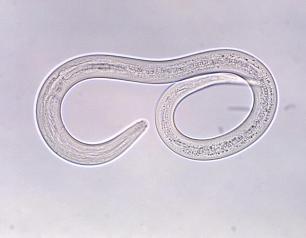
NIAID’s VRC, S. Africa’s Afrigen Kick Off Vaccine-Sharing Efforts
A team of vaccine production experts from South Africa recently finished training with NIAID Vaccine Research Center scientists. Their objective: to globally produce vaccines against a list of troubling infectious diseases.
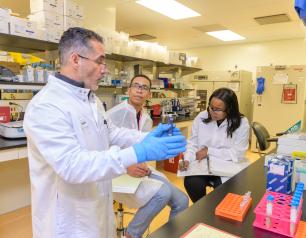
Study Examines the Association of Frailty, Age, and Biological Sex with COVID-19 Vaccine–Induced Immunity in Older Adults
Understanding immunosenescence is crucial for vaccine development and implementation in older populations to induce a robust immune response for protection against infectious disease. This study characterized the intersection of sex and aging on the antibody response to the Moderna and Pfizer COVID-19 vaccines.
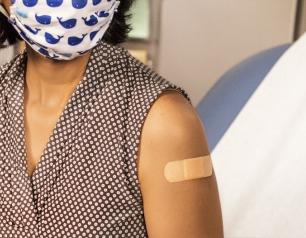
Among People Living with HIV, Study Finds Higher Burden of Aging-Related Comorbidities in Women Than Men
The growing uptake of antiretroviral therapy (ART) has resulted in an increase in the lifespan of persons with HIV (PWH); however, aging-related non-AIDS comorbidities (NACM) are now on the rise and present a new health challenge.
Hepatitis B and C—A Closer Look at NIAID Research to Accelerate Elimination
Viral hepatitis is an inflammatory liver disease caused by infection with any of the known hepatitis viruses—A, B, C, D, and E. Most of the global viral hepatitis burden is from hepatitis B and C, which affect 354 million people and result in 1.1 million deaths annually. The Centers for Disease Control and Prevention estimates that in 2020 there were 14,000 and 50,300 new acute infections of...
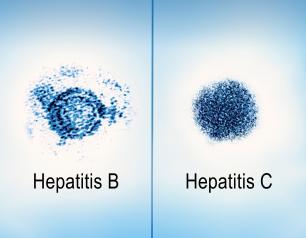
Final IAS 2023 Conversations—HIV & STI Prevention, Stigma, and U=U
As the International AIDS Society’s 12th Conference on HIV Science (IAS 2023) conference drew to a close on Wednesday, HIV.gov continued our conversations about the latest research being presented, with updates on post-exposure prophylaxis for STIs (Doxy-PEP), implementation of HIV PrEP, and the effectiveness of U=U.
IAS 2023—HIV Vaccines, bNAbs, and an Update from NIH’s Office of AIDS Research
This blog is cross-posted from HIV.gov.
On Tuesday at the International AIDS Society’s 12th Conference on HIV Science (IAS 2023), HIV.gov continued our conversations about research highlights, including a focus on the latest about HIV vaccines. We also heard an update from the NIH Office of AIDS Research.
NIH’s Carl Dieffenbach, Ph.D., Director of the Division of AIDS at the National Institute...

